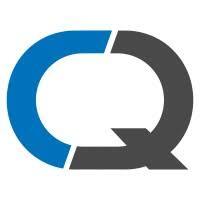Quality Assurance Training for Auditors: Ensuring Thorough Compliance Checks
Body
Quality assurance (QA) training for auditors is an essential aspect of maintaining compliance within various industries, especially in the highly regulated sectors of life sciences and manufacturing. Proper training equips auditors with the necessary skills and knowledge to conduct thorough compliance checks, ensuring that organizations meet quality management standards. This blog will delve into the importance of quality assurance training for auditors, key techniques, and best practices that enhance compliance checks.
1. Understanding Quality Assurance Training for Auditors
1.1 Defining Quality Assurance Training
Quality assurance training for auditors encompasses the processes and methodologies that equip individuals with the knowledge required to evaluate compliance against established standards. This training involves understanding regulatory requirements, quality management principles, and effective auditing techniques.
1.2 Importance in Compliance Checks
In the context of compliance checks, trained auditors play a critical role in identifying gaps in quality management systems. They help ensure that products and processes adhere to regulatory standards, thereby minimizing the risk of non-compliance and the associated repercussions. Effective quality assurance training enhances the auditors' ability to conduct detailed inspections and assessments, ultimately promoting quality in manufacturing.
2. Key Components of Quality Assurance Training for Auditors
2.1 Regulatory Knowledge
A fundamental aspect of quality assurance training is an in-depth understanding of regulatory requirements. Auditors must be familiar with standards such as ISO 9001, FDA regulations, and industry-specific guidelines. This knowledge is vital for performing effective audits and ensuring that organizations comply with relevant quality management system.
2.2 Quality Management Principles
Training should also cover the core principles of quality management, including customer focus, leadership, engagement of people, process approach, and continual improvement. Auditors who understand these principles can better assess an organization's adherence to its quality policies and objectives.
3. Effective Training Techniques for Auditors
3.1 On-the-Job Training
On-the-job training is a practical approach that allows auditors to learn while actively participating in the auditing process. This method enables auditors to apply theoretical knowledge in real-world situations, enhancing their understanding of quality assurance practices.
3.2 Workshops and Seminars
Workshops and seminars provide auditors with opportunities to engage with industry experts and learn about the latest trends in quality management and auditing techniques. These interactive sessions foster knowledge exchange and collaboration among professionals in the field.
3.3 E-Learning and Online Courses
E-learning platforms offer flexibility and convenience, allowing auditors to complete training at their own pace. Online courses can cover a wide range of topics related to quality assurance, compliance, and auditing best practices. Incorporating multimedia elements such as videos, quizzes, and interactive modules can enhance engagement and retention.
4. Continuous Improvement and Refresher Training
4.1 Importance of Ongoing Training
Quality assurance is not a one-time effort; continuous improvement is essential for maintaining high standards. Ongoing training helps auditors stay current with industry changes, emerging regulations, and new auditing methodologies. Regular updates ensure that auditors remain proficient in their roles and are aware of best practices.
4.2 Implementing Refresher Courses
Refresher courses are an effective way to reinforce essential concepts and skills. These courses can focus on specific areas of quality management, recent regulatory updates, or lessons learned from past audits. By providing opportunities for auditors to refresh their knowledge, organizations can enhance overall compliance.
5. Engaging Leadership and Management
5.1 Leadership Support for Training Initiatives
Leadership involvement is crucial for the success of quality assurance training programs. When top management demonstrates a commitment to quality training, it fosters a culture of compliance throughout the organization. Leaders should encourage auditors to participate in training and provide the necessary resources for effective learning.
5.2 Setting Clear Expectations
Establishing clear expectations for auditors is essential for ensuring accountability and promoting a culture of quality. Leadership should communicate the importance of quality assurance training and the impact of auditors’ roles on overall compliance and product quality.
6. Measuring Training Effectiveness
6.1 Key Performance Indicators (KPIs)
To assess the effectiveness of quality assurance training for auditors, organizations should establish key performance indicators (KPIs). These KPIs can include metrics such as audit completion rates, the number of non-conformances identified, and improvements in compliance scores. Monitoring these indicators provides insights into the effectiveness of training initiatives.
6.2 Conducting Regular Evaluations
Regular evaluations of training programs are vital for identifying areas for improvement. Organizations should gather feedback from auditors regarding their training experiences, knowledge retention, and practical application of learned skills. This feedback can inform adjustments to training curricula and delivery methods.
7. Leveraging Technology in Quality Assurance Training
7.1 Utilizing Quality Management Software
Quality management software can facilitate training by providing access to training materials, documentation, and compliance checklists. These tools can streamline the auditing process and ensure that auditors have the resources they need to perform their roles effectively.
7.2 Virtual Reality (VR) and Simulation Training
Incorporating VR and simulation training into quality assurance programs allows auditors to practice their skills in a risk-free environment. These immersive experiences can enhance learning outcomes and better prepare auditors for real-world auditing scenarios.
Conclusion
Quality assurance training for auditors is essential for ensuring thorough compliance checks and maintaining high standards in quality management. By implementing effective training techniques and fostering a culture of continuous improvement, organizations can enhance their auditing processes and ensure compliance with regulatory standards. ComplianceQuest Management Software is vital for businesses in 2024, as it streamlines quality management processes and supports training initiatives, ensuring adherence to industry regulations. Investing in quality assurance training not only improves compliance but also contributes to the overall success and reputation of the organization in the competitive landscape of manufacturing and life sciences. By prioritizing quality assurance training for auditors, companies can drive operational excellence and foster a culture of quality throughout their operations.











Comments